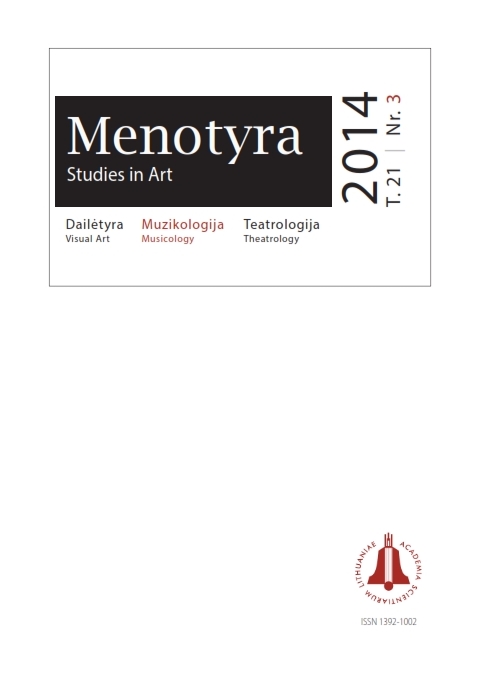Muzikinis ugdymas Vilniaus mokytojų institute 1875–1900 m.
Musical education at Vilnius Teacher Training Institute in 1875-1900
Author(s): Kamilė RupeikaitėSubject(s): Fine Arts / Performing Arts, Music
Published by: Lietuvos mokslų akademijos leidykla
Keywords: Vilnius Teacher Training Institute; musical training; Vasily Spassky; singing
Summary/Abstract: This article provides the first review of musical education at the Vilnius Teacher Training Institute from the year it was established to1900. The review is based on archival material stored at the Lithuanian State Historical Archives and on the 1900 publication “Двадцатипятилетие Виленского учительского института. 1875–1900. Краткая историческая записка”. Even though the publication is full of pathos, strong emphasis on political aspects related to the establishment and activities of the institute, the Tsar, and Russia, including ideology exalting Russian culture and promoting a pro-Russian interpretation of Lithuanian history, the publication is extremely valuable as an authentic piece of material that survives from the times when the institute was operating and as a document testifying to the peculiarities of the education system in tsarist Vilnius.The Vilnius Teacher Training Institute was established in 1875 with the aim to meet the growing need faced by the tsarist government for the initial training of teachers to work in schools in the city of Vilnius. The institute mainly focused on written works in the Russian language, but a lot of time and effort was devoted to developing the students’ musical ear and singing skills. It is said that from the day it was established, the institute ‘had a strong focus on the best possible teaching of singing’. Musical training during the period under review was inseparable from the ideology and culture of Czarist Russia and from the traditions of the Orthodox Church. Students were taught about the works of Russian composers and Russian folk songs that were found suitable by the tsarist government, specifically in terms of its Russification policy. The article covers the history of the establishment of the institute, the teaching of singing and music in the context of other disciplines (including teaching programmes), the practical training of students, the system for teaching music at a city school that was operated by the institute, and personalities. Vasily Spassky, who worked at the institute from 1875 to 1883 and was the first teacher of singing, history and geography, is one of the personalities widely discussed in the article. Historical sources and awards show that Spassky was a highly qualified professional who educated the members of the choir of the institute. Led by Spassky, the institute’s choir became widely known and was considered one of the best choirs in Vilnius. In later years, beginning with 1883, there was a high turnover of teachers of singing and music at the institute, and the standard of teaching singing and music at the institute and at the school that it established often varied.
Journal: Menotyra
- Issue Year: 21/2014
- Issue No: 3
- Page Range: 209-227
- Page Count: 19
- Language: Lithuanian

